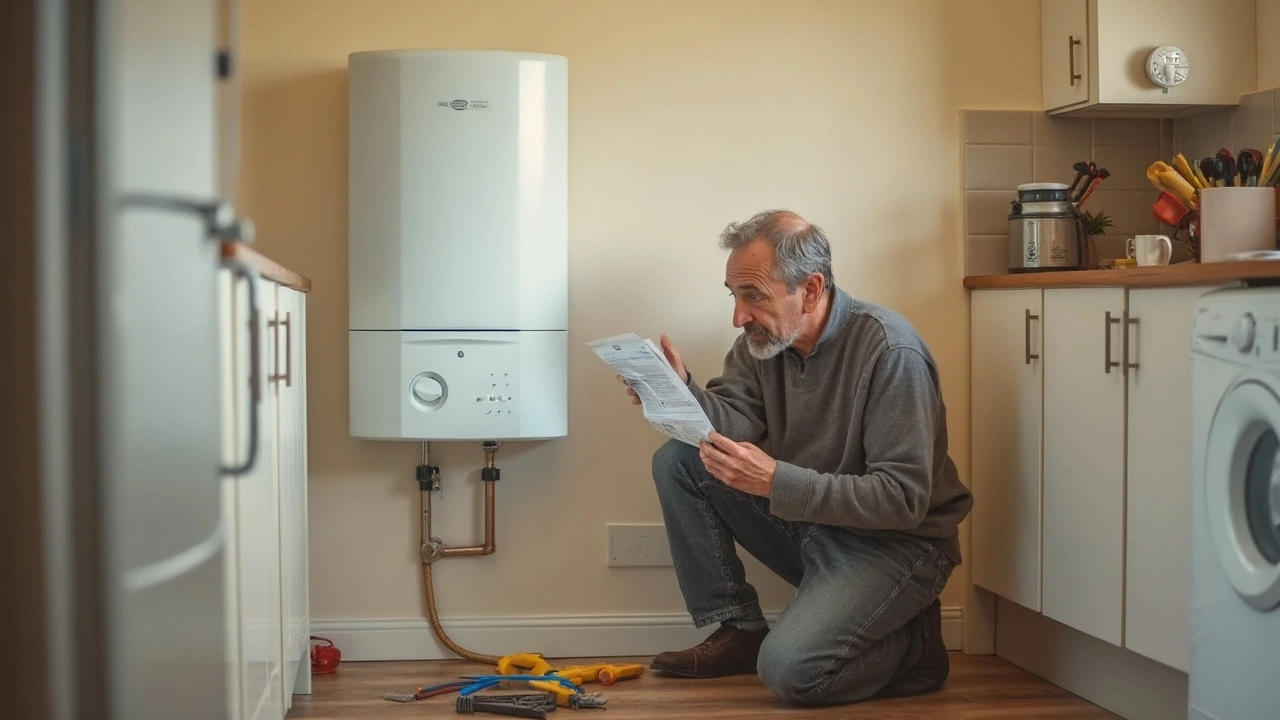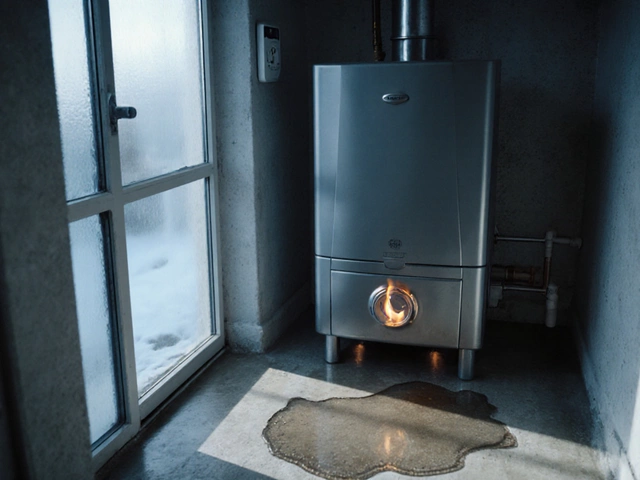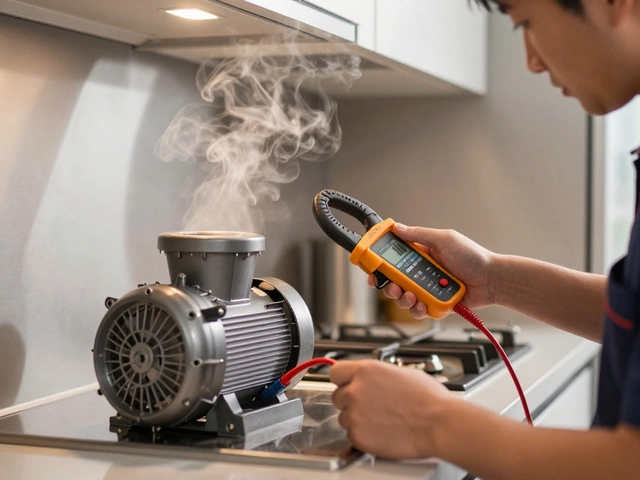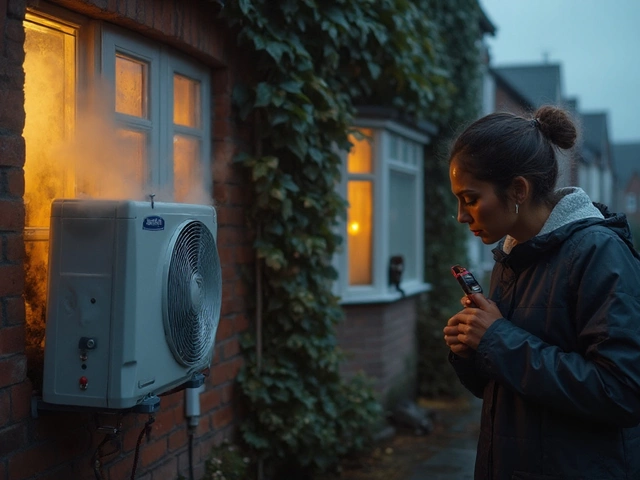Boilers keep the heat and hot water flowing, but when they start making strange noises or the radiators get cold, it’s tempting to just grab some tools and handle it yourself. Here’s the thing—servicing a boiler isn’t like changing a tap or painting a wall. There are big safety risks and some strict rules about who’s allowed to do what.
If you’re in the UK, for example, it’s illegal for anyone who’s not Gas Safe registered to carry out most boiler servicing tasks. That’s not just scary talk; getting it wrong could lead to gas leaks or even explosions. Doesn’t matter how handy you are—if you don’t have the right qualifications, you really can’t legally open up the boiler and dig in.
But not everything boiler-related is off-limits. There are minor jobs you can do that don’t touch the gas or electrical side of things. Regular checks, bleeding radiators, and making sure your pressure gauge’s in the right zone? That’s fair game and often enough to keep things running smoothly between professional services.
- Can You Legally Service Your Own Boiler?
- What Tasks Are Actually Safe to Do Yourself?
- Risks and Mistakes DIYers Make
- Essential Tools and Safety Gear
- When to Call a Professional
Can You Legally Service Your Own Boiler?
Most people don’t realise that UK laws around boiler repair and servicing are surprisingly strict. If you own a gas boiler, touching anything beyond basic checks puts you outside the law unless you’re on the Gas Safe Register. It’s actually illegal for anyone without this qualification to carry out most types of work on a gas boiler—no matter how good you think you are with a toolkit. This isn’t just government red tape; it’s about preventing serious risks, including carbon monoxide leaks, gas explosions, or damaging your whole system.
What counts as legal DIY? Here’s what you can do confidently:
- Check the boiler pressure and top it up if it’s low (follow your manual).
- Bleed your radiators if they’re cold or making odd noises.
- Clean around the outside of the boiler (never inside the casing).
- Keep vents and flues clear from obstructions.
- Reset the boiler if the manual advises it for minor faults.
Anything else, like opening the cover, replacing parts, tampering with gas or electrics? Off-limits unless you’re certified.
Messing up isn’t just dangerous, it’s also expensive. If you touch gas components illegally, it can void your home insurance or warranty. And if you’re renting out your place, you have to get annual service paperwork from a registered engineer.
To put it in numbers, the Gas Safe Register handles over 1,000 illegal gas work investigations each year. Their stats show that more than 60% of illegal boiler jobs are found to be unsafe for use. So, stick to the basics if you’re not registered, and don’t be tempted by YouTube repair videos—your safety’s worth more.
What Tasks Are Actually Safe to Do Yourself?
You’re probably wondering, “Can I do anything to my boiler without breaking the law or risking a disaster?” Let’s keep it simple—yes, there are a few boiler maintenance jobs that most people can safely handle. Just stay away from anything involving gas or the internal workings of the boiler. Here’s what’s on the ‘safe’ list:
- Checking boiler pressure: If your heating stops working or you see a warning light, check the pressure gauge. Most boilers should stay between 1 and 2 bars. If it’s too low, it's usually fine to top it up using the filling loop (just follow the manual). Don’t overdo it—too much pressure can damage your system.
- Bleeding radiators: If they’re cold at the top and hot at the bottom, trapped air is probably to blame. Grab a radiator key and a cloth, turn off the heating, and let out the air till water dribbles out. Gets your radiators working right again and saves energy.
- Cleaning around the boiler: Keep the area clear of clutter and dust. Boilers need good airflow, and anything blocking the vents or louvers can cause problems.
- Resetting the boiler: Sometimes a boiler will lock out due to a minor glitch. If your model has a reset button (check the manual), you can press it as instructed. But if the problem keeps coming back, don’t keep resetting—get professional help.
- Visual inspections: Check for leaks, drips, or any odd noises. If you spot water on the floor, or see error codes on the display, make a note—you’ll need to tell a boiler repair pro if you call them out.
Here’s a quick breakdown of tasks you can do versus tasks you can’t:
| DIY Task | Safe? | Needs a Pro? |
|---|---|---|
| Top up boiler pressure | Yes | No |
| Bleed radiators | Yes | No |
| Clean vents/area around boiler | Yes | No |
| Open boiler casing | No | Yes |
| Service gas parts | No | Yes |
If you ever feel unsure or you smell gas, don’t mess around—call a Gas Safe engineer straight away. Playing it safe is always better than hoping for the best. Remember, your boiler repair job is about prevention, not risky DIY fixes.
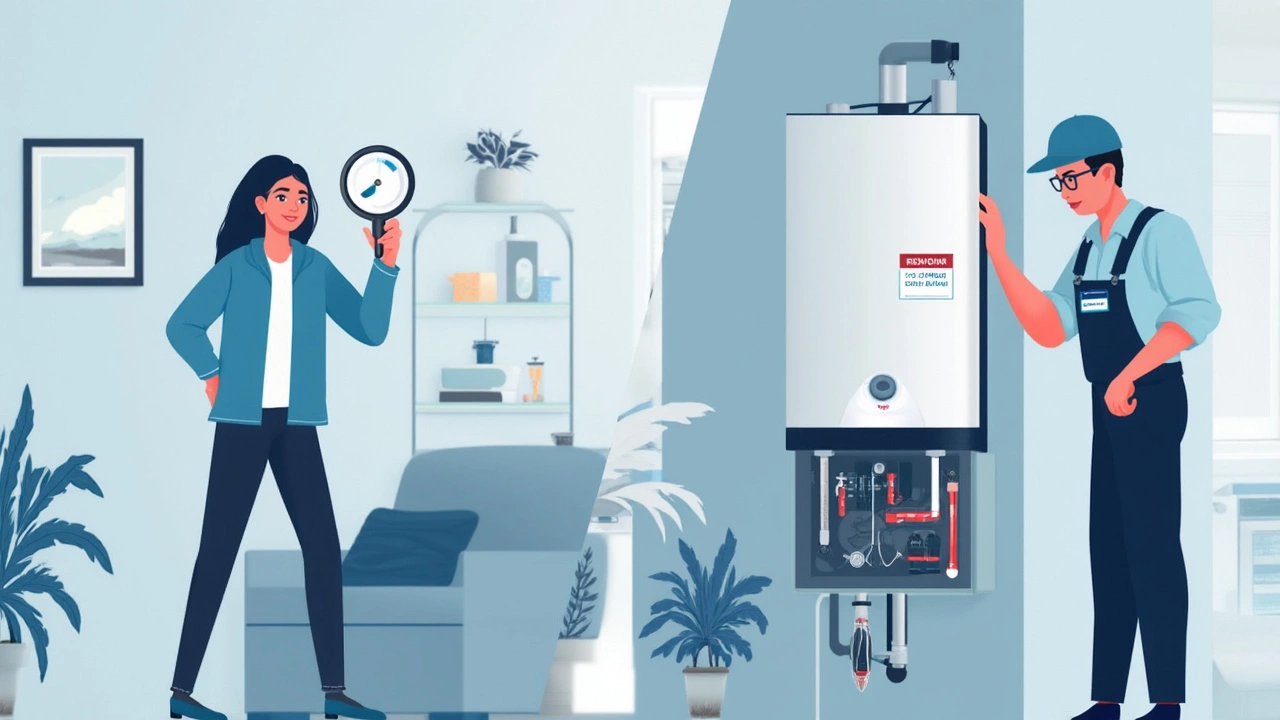
Risks and Mistakes DIYers Make
Tackling boiler repair yourself can turn into a real headache, even risky. The main danger with any DIY boiler service is messing with gas fittings—one dodgy move and you've got a carbon monoxide leak, which you can’t see or smell. Every year, emergency services respond to thousands of cases related to gas leaks and faulty boilers. According to the Gas Safe Register, over 1 in 5 homes inspected had unsafe gas appliances.
One big mistake folks make is thinking a quick YouTube tutorial makes them a pro. Common DIY blunders include:
- Opening up sealed parts or covers—not legal unless you're registered.
- Resetting or tamping with safety features, which can put your whole house at risk.
- Forgetting to shut off the power supply before poking around.
- Over-pressurizing the system by adding too much water.
- Using the wrong tools, leading to broken valves or leaks.
Messing with anything gas-related can also void your warranty or insurance. Most home policies won’t cover damage if something goes wrong with a DIY boiler repair. That’s a nightmare if you ever try to make a claim after a breakdown or (worse) a fire. And let’s not forget about incorrect boiler maintenance—simple things like bleeding radiators too much, or ignoring water leaks, can cause bigger and much more expensive problems down the road.
If you’re still tempted, just check out this quick breakdown of problems that happen with DIY jobs compared to pro fixes:
| Common DIY Mistake | Potential Consequence | Pro Solution |
|---|---|---|
| Bypassing safety controls | Serious safety risk—gas leaks or fire | Safety checks with professional equipment |
| Wrong pressure balancing | Boiler breakdowns, leaks, damage | Precision adjustments |
| Improper cleaning of internals | Blockages, inefficiency | Full system flush |
| Incorrect wiring reconnections | Electric shock, damaged components | Tested electrical work |
It's normal to want to save a few bucks or feel handy, but the risks with boilers aren’t worth it. Anything past simple checks and radiator bleeds should go to a certified pro. Spending a little on safe, legal boiler repair beats a huge repair—or injury—down the line.
Essential Tools and Safety Gear
If you’re tackling any small part of boiler maintenance or simple checks, don’t just grab the first old screwdriver you find. Using the right gear actually keeps you safe and makes the job much less of a headache. Plus, for anything beyond the basics, gear up as if you’re expecting the unexpected.
Here’s a solid lineup of what you’ll want nearby if you’re doing any safe, DIY-friendly boiler tasks:
- Pressure gauge (or knowing where yours is) – Always check your system pressure sits between 1 and 2 bar. Anything out of range and you’ll want to call an expert.
- Radiator key – Essential for bleeding radiators, stopping cold spots and weird noises.
- Adjustable spanner – Handy if you need to tighten any external water connections (never touch anything gas-related).
- Old towels or rags – Useful for catching water drips and avoiding slippery messes.
- Basin or tray – Makes catching water much simpler during bleeding or draining.
- Work gloves – Keeps hands protected from sharp metal edges or hot pipes.
- Protective glasses – Stops dust or hot steam getting in your eyes.
And if you’re even thinking about touching anything electrical, always turn off the power at the mains—it’s a non-negotiable step. Though, honestly, if it’s more than just hitting reset or checking fuses, it’s time for a qualified engineer.
Here’s a quick look at how often people actually get caught out with injuries or mistakes around boilers in the UK. It’s a reminder to go slow and use the right gear:
| Incident | Annual Cases (UK, 2023) |
|---|---|
| Minor burns or scalds | 2,300+ |
| Accidental leaks (non-gas) | 900+ |
| Boiler-related gas incidents | 280 |
One last thing—never try to make your own fixes with homemade tools or ‘hacks’ found online, no matter how easy someone makes it look. Using what’s meant for the job pays off in peace of mind and often your own safety, too.

When to Call a Professional
There’s a big line between what you can handle and when you need a pro for boiler repair or servicing. If your boiler’s showing an error code you’ve never seen, or if you smell gas, that’s a hard stop—step back and call a Gas Safe registered engineer right away. Gas leaks aren’t just dangerous; they’re life-threatening. Same goes for anything electrical—unless you really know your way around circuits, don’t mess with it.
Here are the main situations where you should absolutely put the tools down and get professional help:
- Boiler won’t start: If you’ve checked your power and pressure and it’s still dead, it could be a deeper fault.
- Weird noises: Banging, clanging, or whistling usually means something tricky like limescale, airlocks, or pump problems.
- Repeated pressure drops: If it keeps happening, there could be a leak inside the boiler—best not to open it up yourself.
- Pilot light keeps going out: This could mean a faulty thermocouple or even a gas supply issue.
- Visible leaks: Any water coming out of the boiler isn’t normal. Internal leaks ruin components fast.
- Annual servicing: The law actually says only a certified person can legally do the full annual service. You need it for warranties—and, honestly, insurance claims too.
Even if you feel confident, UK law says only a Gas Safe engineer can repair or open up your boiler's gas and flue components. And here’s something to keep in mind: insurance companies usually check if work was done by a pro, so DIY fixes could end up voiding your coverage.
| Problem | DIY Possible? | Pro Needed? |
|---|---|---|
| Gas Leak | No | Yes |
| Boiler Turns Off Suddenly | Check basics only | Yes |
| Water Leaks | No | Yes |
| Error Codes | Check manual | If unresolved |
| No Hot Water | Check thermostat/pressure | If issues persist |
If you’re honest about what your boiler skills really are, you’ll probably avoid expensive—and dangerous—mistakes. Some fixes might look easy online, but there’s a reason engineers train for years and need to update their tickets yearly. Call a pro if you’re ever in doubt. It keeps your home safe and warm. Simple as that.
